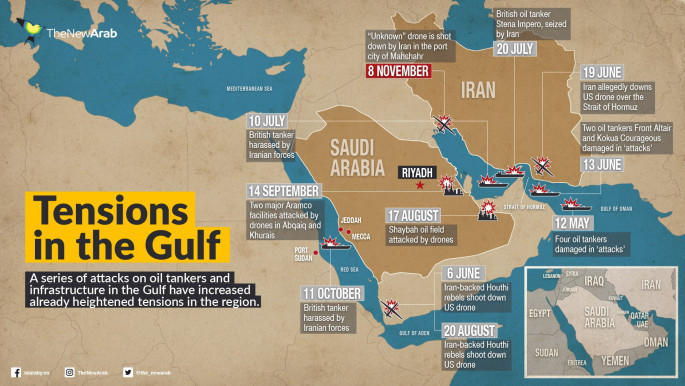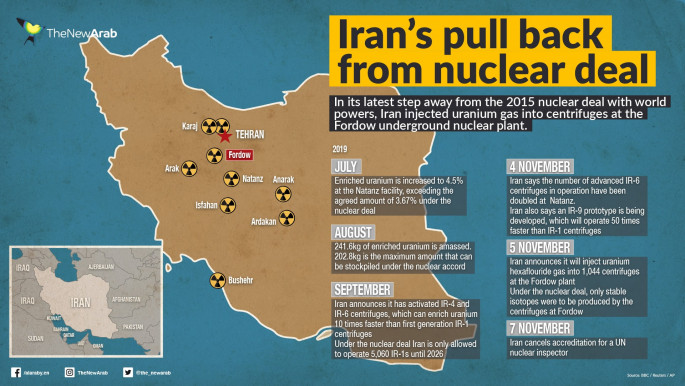US 'mulling' doubling troop numbers in Middle East amid Iran tensions
The United States is considering send up to 14,000 more troops to the Middle East in the face of a perceived threat from Iran, the Wall Street Journal reported on Wednesday.
The mulled deployment would include "dozens" more ships and double the number of troops added to the US force in the region since the beginning of this year, the Journal said, citing unnamed US officials.
It said President Donald Trump could make a decision on the troop boost as early as this month.
The consideration comes after a series of attacks on shipping vessels and a drone and missile attack on Saudi oil installations in September blamed on Iran.
Washington has already ratcheted up its military presence in the Gulf and expanded economic sanctions on the country after the attacks, elevating tensions across the region.
In mid-November the US aircraft carrier Abraham Lincoln sailed through the Strait of Hormuz in a show of force aimed at reassuring allies worried about Iran.
In October, Defense Secretary Mark Esper announced that two fighter squadrons and additional missile defense batteries were being sent to Saudi Arabia, for a total of about 3,000 new troops.
 |
| [Click to enlarge] |
Saudi Arabia has been paying US for military protection, Trump revealed on Wednesday.
"You know, Saudi Arabia - we moved more troops there. And they're paying us billions of dollars. Okay? You never heard of that before. You've never heard of that in your whole life," he said.
"We moved troops and we paid nothing. And people took advantage and the world took advantage of us. But we do - we have a good relationship with Saudi Arabia, but they needed help. They were attacked. And, as you saw, we just moved a contingent of troops, and they're paying us billions of dollars and they’re happy to do so."
Earlier on Wednesday, Iranian President Hassan Rouhani said the Islamic Republic is willing to return to the negotiating table over its nuclear program if the United States first drops sanctions, which have hampered the country's economy and may have contributed to recent domestic turmoil sparked by fuel price hikes.
In 2015, Iran signed the Joint Comprehensive Plan of Action (JCPOA) alongside the US, France, the UK, Russia, China and Germany.
The deal, which became known as the Iran nuclear deal, provided Iran with relief from economic sanctions in exchange for restrictions on its nuclear programme
Following America's unilateral withdrawal from the nuclear agreement last year coupled with renewed sanctions led by Trump, the deal has been at risk of collapsing.
 |
| [Click to enlarge] |





 Follow the Middle East's top stories in English at The New Arab on Google News
Follow the Middle East's top stories in English at The New Arab on Google News
![Israeli forces ordered bombed Gaza's Jabalia, ordering residents to leave [Getty]](/sites/default/files/styles/image_330x185/public/2176418030.jpeg?h=a5f2f23a&itok=_YGZaP1z)

